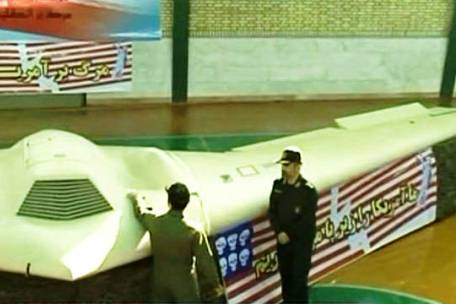Iran Must Negotiate with the US over their UAV

IRD: How do you evaluate President Obama’s request from Iran in regards to returning the spy drone to the US?
AB: Firstly, Obama’s request is indicative of this drone’s importance to the US. Furthermore, the US is concerned over the implications regarding a competitor having access to this sort of technology. And additionally, during his speech Obama kept a calm and unassuming tone-- meaning that he did not speak in an angry or aggressive tone-- probably due to the fact that he does not want to make the situation any more tense.
On the other hand, some foreign analysts have stated that neither Iran nor Russia have the ability to reverse engineer this drone in order to duplicate its technology. Therefore, it seems that Obama’s request was more to do with a legal obligation he has to put forward the request to return the drone rather than a political effort.
IRD: How about Iran’s position and approach on this matter?
AB: Considering the intensity of the present situation, perhaps Iran reacted the only way that it could. Furthermore, this drone is considered “war booty” and therefore a property of Iran. But my speculation is that this event will soon lose its present intensity and the drone may become a heavy burden for Iran in the future. Iran will not be able to use the technology in the drone; therefore it will only contribute to the opacity of US-Iran relations.
IRD: Could Iran use this drone to improve relations with the US?
AB: In the past, Iran released 3 American prisoners, despite the fact that there are a number of Iranian prisoners in the US. When President Ahmadinejad was in New York he wished to trade prisoners with the US but this attempt fell through. Yet Iran released the three US prisoners, engaging in a one-way deal.
The current situation with the drone has tipped the balance in favor of Iran and demonstrates its strength. Safely bringing down the US drone-- by any method-- validates Iran’s capability, but as I mentioned before this is a passing matter and soon Iran will be left with nothing but the carcass of this plane. However, if Iran uses clever diplomacy it could gain a great deal from this drone. We can’t yet say with certainty how this can be done but at the right time Iran can use this to somehow soften its relations with the US.
IRD: It seems that currently Iran is facing three options; firstly to ensure that the drone remains in its possession, secondly to give the spy plane to Russia or China, or lastly to use it for negotiations.
AB: The last option seems the best opportunity for Iran. In my opinion the second option is merely childish. During the coming days Russian experts may examine the plane but I imagine not even the Russians have the knowledge to extract the drones technology, nor does China. Walking down this path Iran could be accused of acting like a bandit. I believe the only way forward is to engage in diplomacy with the Americans behind closed doors. Of course, such negotiations require diplomatic finesse, yet it is much more logical than handing over the drone to the Chinese or the Russians.

